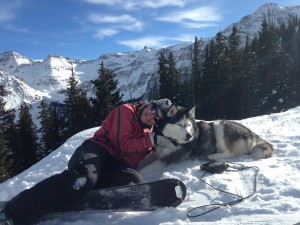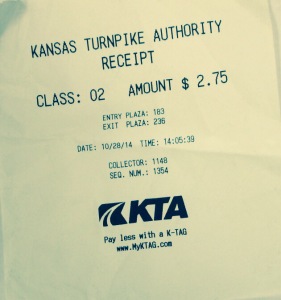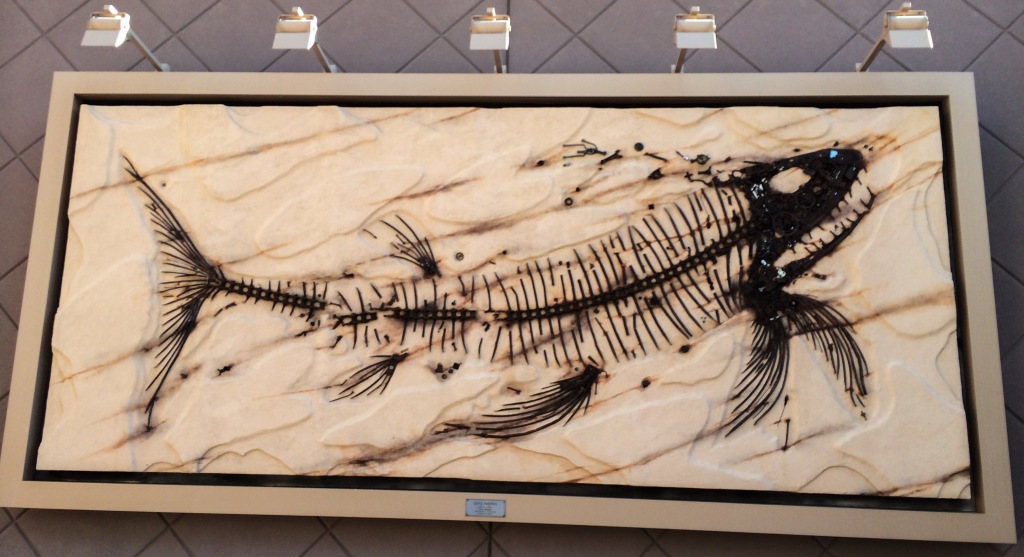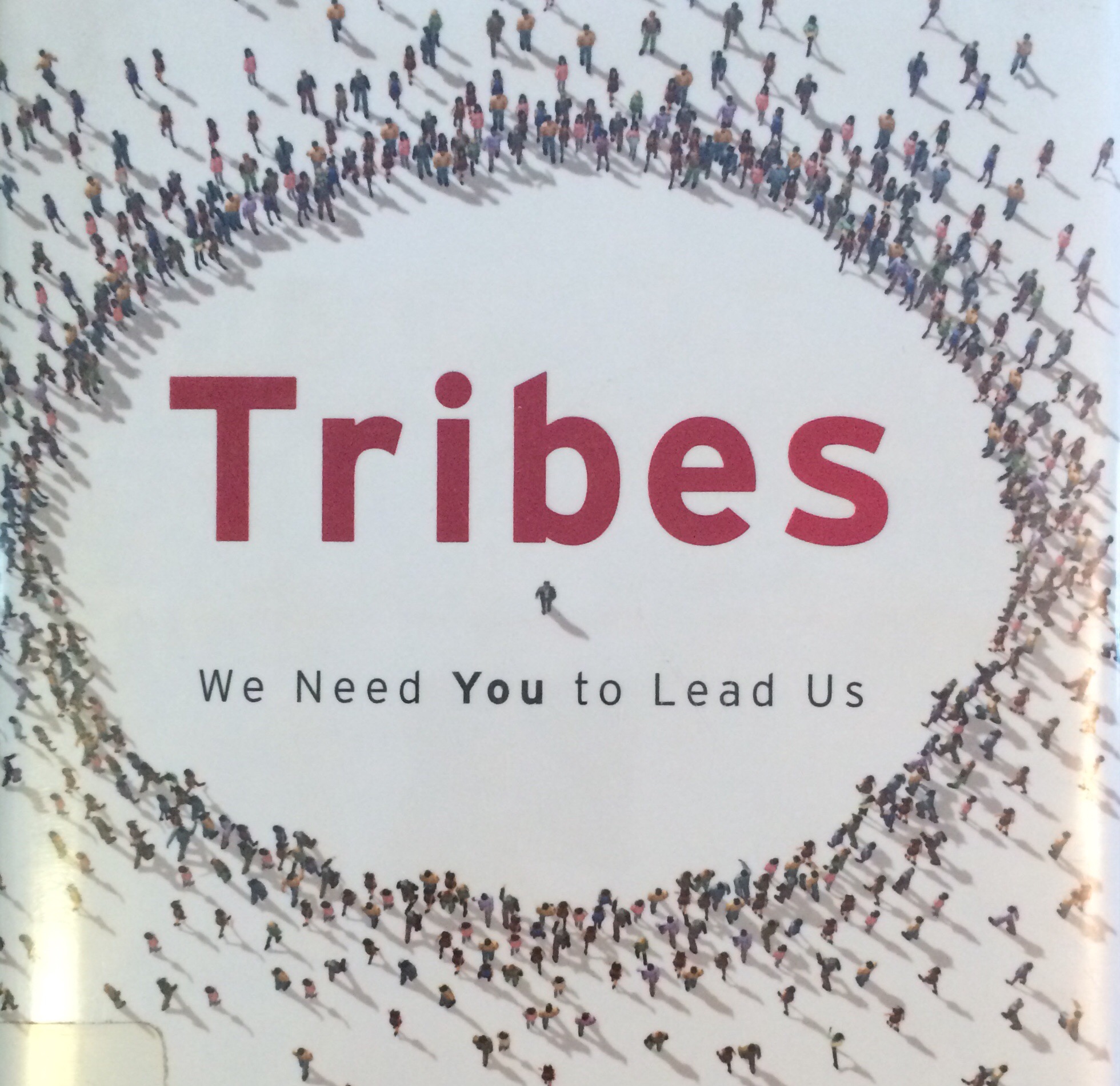 Tribes, by Seth Godin, describes how significant change can be implemented by groups of people connected to each other by an idea, goal, or conviction. A tribe. The tribe doesn’t have to be co-located. It only needs something to believe in, a leader, and a place to connect. While reading, I was struck at how much Tribes applies to environmental professionals and this blog. Continue reading
Tribes, by Seth Godin, describes how significant change can be implemented by groups of people connected to each other by an idea, goal, or conviction. A tribe. The tribe doesn’t have to be co-located. It only needs something to believe in, a leader, and a place to connect. While reading, I was struck at how much Tribes applies to environmental professionals and this blog. Continue reading
Category Archives: Blog
What You Need to Know About Arsenic in Wine
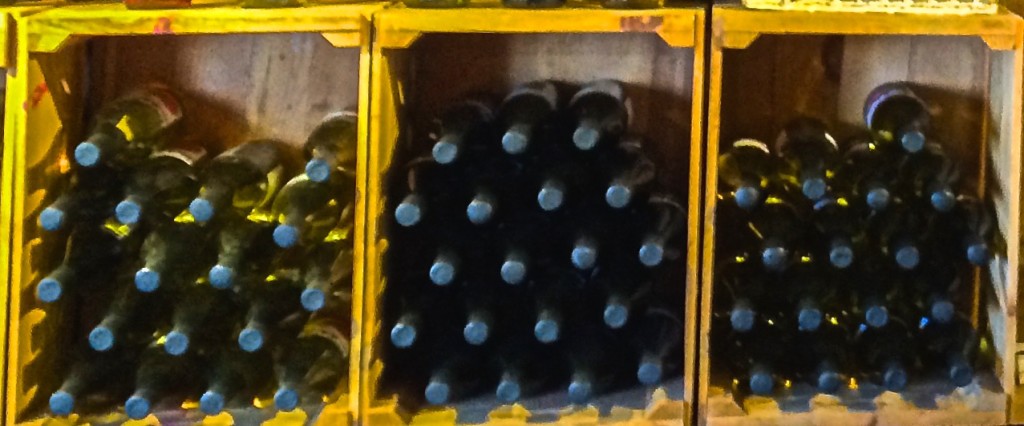 An independent laboratory, BeverageGrades, sampled over 1,300 wines for arsenic levels. 83 wines from 28 wineries in California had high levels of arsenic. Some of them were 4 to 5 times the Environmental Protection Agency acceptable levels for arsenic in drinking water, 10 ppb. The wines with the higher concentrations were the cheaper California wines. Here is the list of wines found to have high arsenic levels.
An independent laboratory, BeverageGrades, sampled over 1,300 wines for arsenic levels. 83 wines from 28 wineries in California had high levels of arsenic. Some of them were 4 to 5 times the Environmental Protection Agency acceptable levels for arsenic in drinking water, 10 ppb. The wines with the higher concentrations were the cheaper California wines. Here is the list of wines found to have high arsenic levels.
Why is there arsenic in wine? Continue reading
TNEP Profile: Kim Wheels, Energy Consultant
Kim Wheels could go by many different titles, but the one I like the most is Energy Consultant.
Kim lives in Ophir, CO, a small town at nearly 10,000 feet outside Telluride. She provides home energy efficiency consultation through her business, Lotus Energy Solutions, and is the Energy Programs Coordinator for Eco Action Partners, San Miguel County’s sustainability organization. She is a mechanical engineer by education and training, but isn’t a mechanical engineer. Her career in renewable energy and sustainability is a blend of her technical skills, a deep interest in renewable energy, her love of being outdoors, and being connected to the community of southwestern Colorado.
We met through a mutual friend while skiing at Eldora this winter. When she began describing her work and life in Telluride, CO, I knew she would make an interesting profile. She has found a balance that many environmental professional look for – to do the work you enjoy while also enjoying the very reason you do the work. That means being able to ski, play, and enjoy nature, while working to protect it.
We talked about her work, finding a niche as an environmental professional, and the difficulty in summing up our work in a single title. Even Energy Consultant can mean several things. I think the first quote by Kim sums it up well.
KW: It’s not just, what am I doing for work and am I making enough? Its, how does this fit with the life that I truly want to live and am I connected enough with nature and the outdoors? Continue reading
Environmental Professionals are Jedi

Obi Wan would have made a good environmental professional. Photo courtesy of Star Wars: Episode II Attack of the Clones special in Vanity Fair magazine.
Lately I’ve been thinking about ways to describe the work of environmental professionals. I’ve also been enjoying a renewed interest in Star Wars. This comes from my son’s growing interest in Star Wars, the hype of Episode VII and watching Star Wars Rebels. This combination has made me realize that environmental professionals and Jedi have a lot in common. A bit of a stretch? Maybe. But it’s fun. Continue reading
Exploring Environmental Art: Astrophotography
 This is part of a series where I explore interesting pieces of environmental art.
This is part of a series where I explore interesting pieces of environmental art.
I recently took a photograph of the moon, Venus and Mars together in one frame. My son initially spotted the crescent moon low in the sky at dusk. Young kids have a curiosity and wonder about nearly everything. Looking at the photo with my son I realized how astrophotography has the power to spark that wonder. In order to appreciate how astrophotography fits into the umbrella of environmental art I wanted better photos. I asked my friend Brian Kraft, a professional photographer, and he didn’t disappoint. He provided these great photographs and cool time-lapse video at the bottom of the page. You can check out more of his photography at www.BrianKraft.com
Astrophotography captures the sky and inspires us to take a deeper look into space. It often lets us see more than we can with the naked eye. The good astrophotography, like any good photograph, become more than a photograph. They become art. They provide a medium to contemplate the extraterrestrial world. They help us understand our place in the cosmos, which can lead to further appreciation of earth and space sciences. Continue reading
What Makes Hazardous Waste Hazardous?
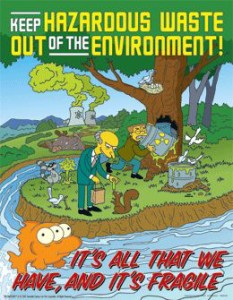
Despite Mr. Burns worst intentions, radioactive waste is not hazardous waste. Image via SafetyPoster.com
I am asked some version of this question or need to explain it nearly every month. What makes hazardous waste hazardous? Is this hazardous waste? What’s in hazardous waste?
The answer provided here isn’t intended for an environmental professional or hazardous material manager. It is for everyone else. No regulations, no citations, and nothing technical. Actually, I know a lot of environmental professionals who don’t work in the hazmat/waste field who would benefit from this. If you want the technical definitions and regulations, you can get them here from the EPA.
I’ve found that people have a generic, catch-all perspective that hazardous waste is all the “toxic stuff we have to throw out”. It is not a generic term. It has very specific characteristics and determinations.
Q: What is hazardous waste? Continue reading
Eco Fashion: The Green Clothing Industry
We don’t think about the environmental impact of our clothing. Sustainable use, design, and implementation is incorporated into our buildings, our food, our beer, city planning, and yes, even our fashion now. Sustainable Fashion or eco fashion makes sense.
I have no experience in the environmental side of the fashion industry. Maybe I should take a closer look at it. Environmental Professional’s can be found in nearly every industry, why not fashion? Check out this infographic about the growth of the fashion industry from BlueGala. Continue reading
Non-Energy Environmental Professional
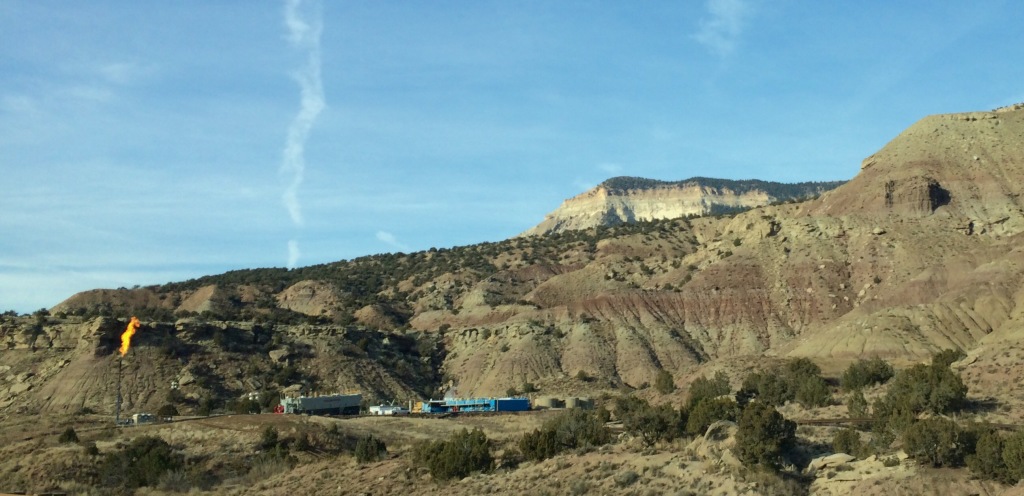
The energy environment is hard to miss in western Colorado.
Energy, climate, sustainability. I’m an environmental professional who doesn’t work in the any of these fields. I feel a bit left out that I don’t work in the “sexy” areas of the environmental field. These are the big picture environmental issues that make headlines, can influence politics, and flood my Twitter feed.
Professionals in the energy field are solving important world problems, both in renewables (solar, wind, etc.) and fossil fuels (oil, natural gas, coal). New climate science is breaking daily and each study seems to be a step in the right direction. Sustainability was a buzzword 15 years ago. Now it’s a critical part of any business, filled with activism, advancing technologies, and solutions. Continue reading
BPA on Receipt Paper
Thermal receipt paper is covered in Bisphenol A or BPA. These are the receipts from restaurants, grocery stores, and gas stations that we handle nearly every day. Once you handle the receipt, the BPA transfers to your hands. In the past year, the EPA and others have begun highlighting this issue, educating the public, and are helping with alternatives. I first heard about it while listening to this episode of Science Friday. I was surprised that it took this long to find it’s way into my news feed. So here’s my little part to help inform you of the issue.
Exploring Environmental Art: Fish Fossil
This is part of a series where I explore interesting pieces of environmental art.
This cool 6-7 foot fish fossil, titled “Still Waters” by Gary Sutphin, is displayed outside an entrance to the Colorado Mills Mall in Lakewood, CO. It is not a museum. It is clearly displayed as art. Does it fit within the category of “environmental art”? If I ask myself this questions then it probably does. It’s science, a fossilized prehistoric fish, displayed like a painting or sculpture. Therefore, yes it is very much environmental art. If this piece gets you thinking about fossils, dinosaurs, prehistory, or big fish, then the artist has done his part to create environmental art. Continue reading

